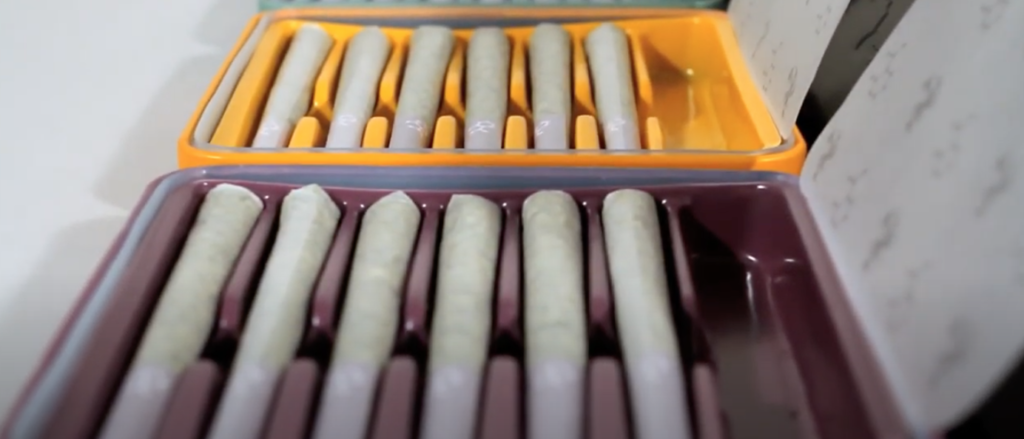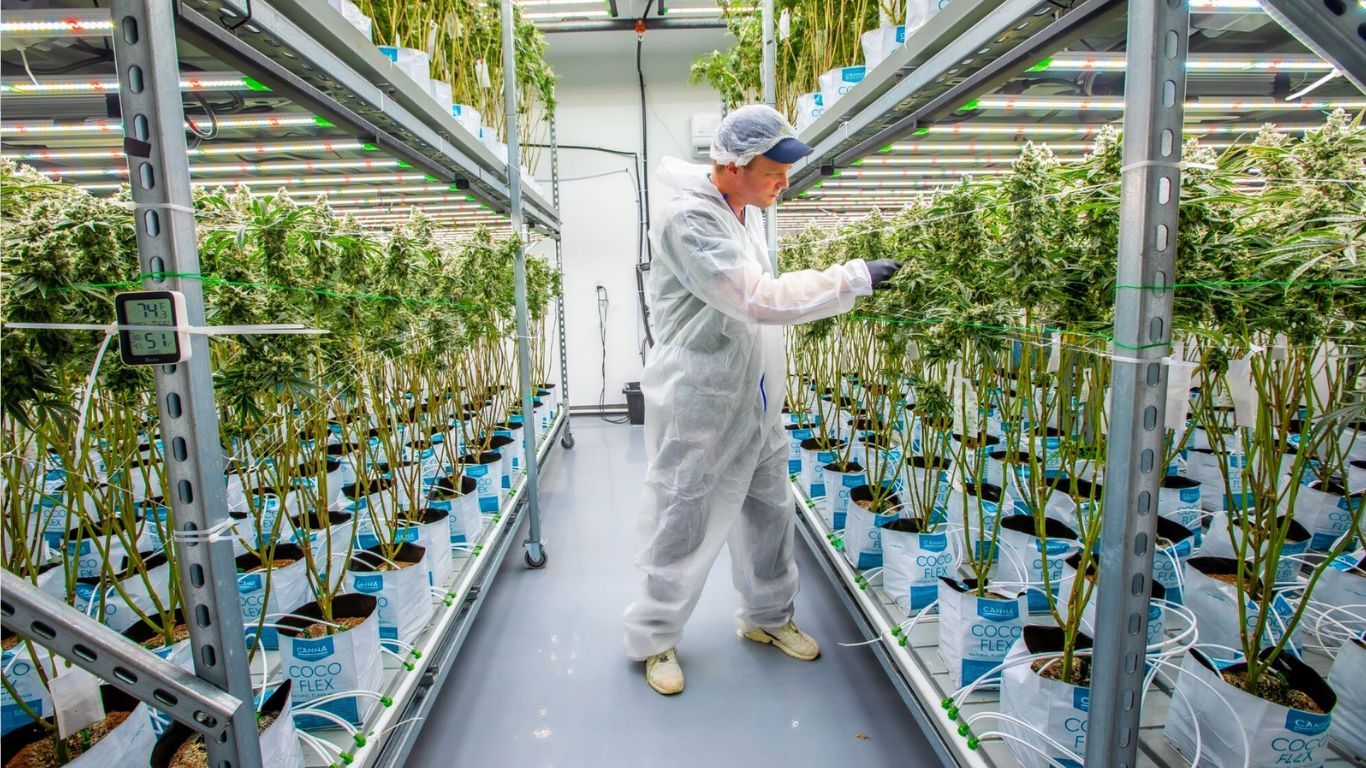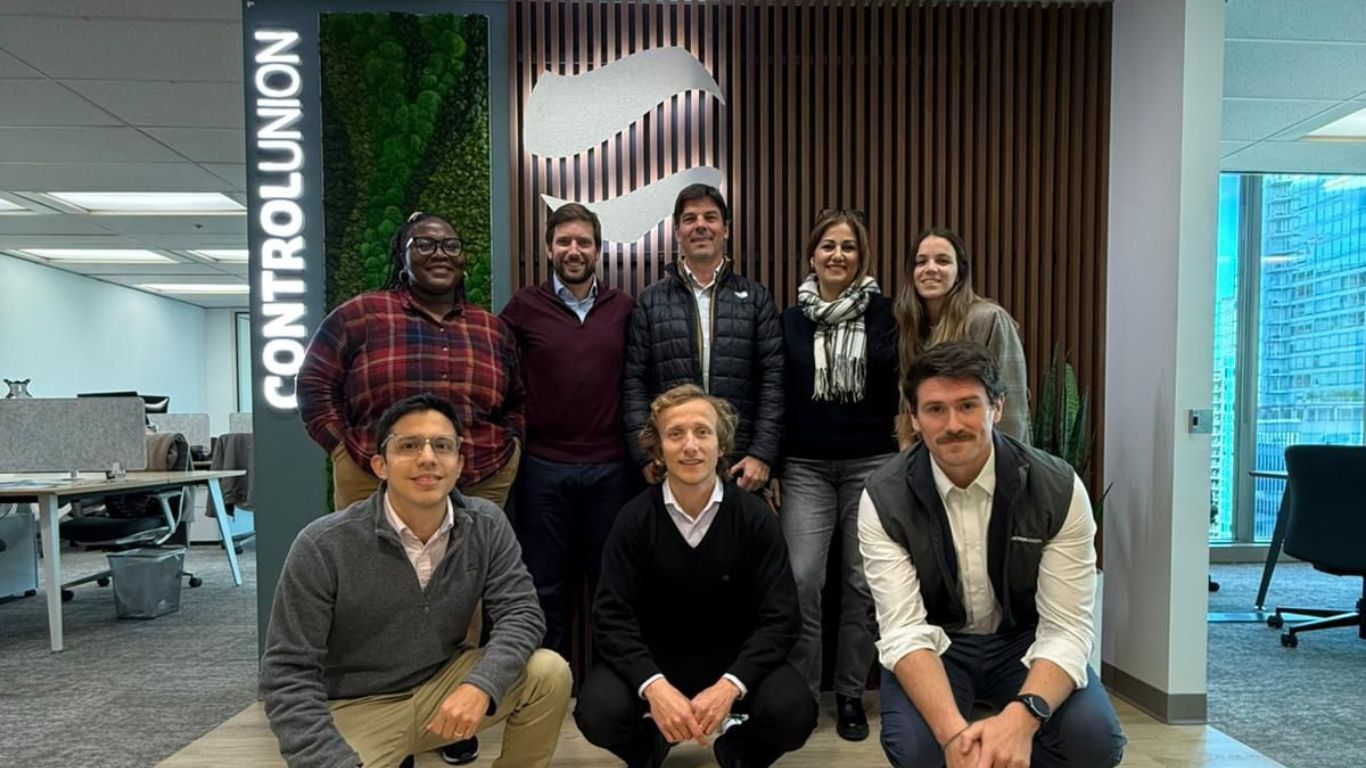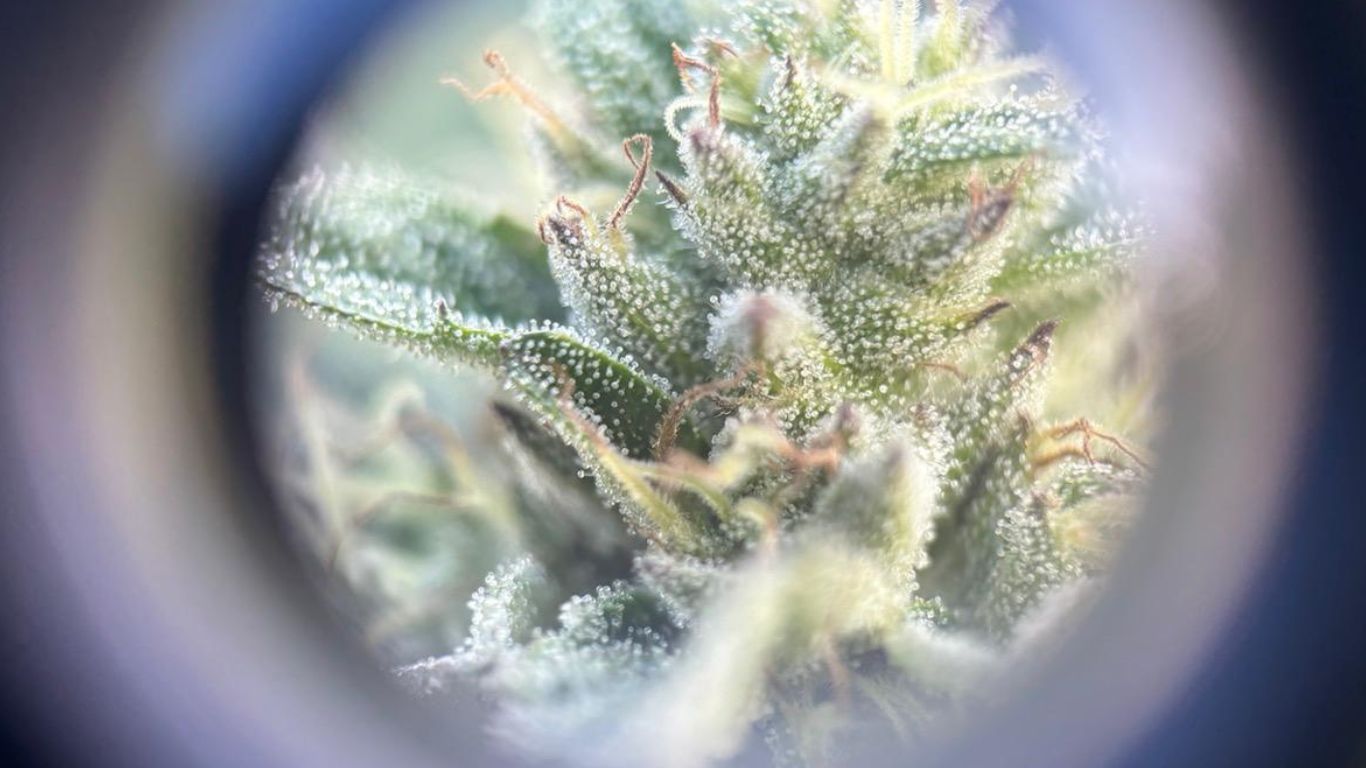
| COMPANY: | Shelter Cannabis |
| LICENCE TYPE: | Standard Cultivation and Processing |
| APPROACH: | Co-packing, toll-processing |
| TIMELINE: | n/a |
| COST: | na |
| FACILITY | Indoor |
Shelter Cannabis is a Saskatchewan-based cannabis processor who is emerging as one of the premier access points for the first micro cultivators who are bringing products to the consumer and medical market.
Branded + Co-branded product
The company is currently producing pre-rolls from product grown in-house, as well as operating as a third party toll processor for others looking to sell pre-rolls and other products either under their own branding, as white label, or as a co-branded product under the Shelter and Farmstead brands.
Currently Shelter is selling in the non-medical market in Saskatchewan and Manitoba, with plans of reaching into other provinces soon, and also selling online to patients under their medical sales licence. In addition to their own branded products, they also sell cannabis produced by two micro licence holders – Saskatchewan based North 40 and BC based Habitat Craft Cannabis – and they are in talks with many new producers they hope to unveil soon.
Transition to the legal market
Shelter is the brainchild of Mark Hauk and his small team who had been operating in the pre-legalization legacy market for several years before the company transitioned to the legal, regulated market earlier this year. Initially, Hauk ran a medical cannabis dispensary in Saskatoon, the Saskatchewan Compassion Club, as well as an online cannabis retailer called National Access Cannabis, but said his goal had always been to transition to the legal market.
“We just continued down the path of trying to live honourably and build value in any way that we could, and hope and know that the opportunities would present themselves to make a transition at some point.”
After being forced to close the Saskatchewan Compassion Club in 2015 after only two months following a raid by Saskatchewan police, Hauk says he moved his operation to Victoria BC where he continued to operate online, serving over 45,000 patients across Canada over the course of about four years. Then, around 2018 he says he began seriously looking at how he could pivot into the legal market.
“We always had the intention,” says Hauk, “without really knowing exactly how it would play out, that at some point when we felt that it was the right time or when the opportunity would present itself, that we could make the transition into the regulated world and continue to do all kind of work that was important to us. That way we could continue to do the work of providing medical cannabis to patients, and then if there was the opportunity to participate in the commercial side of things with non-medical products in the legal, commercial market, we could do that, too.”
“So we just continued down the path of trying to live honourably and build value in any way that we could, and hope and know that the opportunities would present themselves to make a transition at some point. It was just about a year ago exactly that we incorporated Shelter as a new formal legal vehicle. I separated myself from the previous legacy world business and started this new path.”
Partnering with existing licence holder
Originally, Hauk says the plan had been to raise capital and build a new facility on Vancouver Island, but the implosion of the capital markets in 2019 made raising money difficult. Because of that, he says he and his team instead identified a handful of existing licence holders who were looking to sell or partner with someone, eventually going with a Saskatchewan-based licence holder Agro-Greens Natural Products, who was originally licensed in late 2017.
By acquiring the existing licence holder, he says they were able to do so with less investment than building their own facility, as well as hit the ground running right away. Although still currently operating under the name Agro-Greens, Shelter is now the sole owner of the operation and says they expect a name change to become official later this year pending final approval from Health Canada.
Manufacturing pre-rolls

One of the initial goals of Shelter, says Hauk, was to develop and refine the process of manufacturing cannabis pre-rolls. Partnering with Agro-Greens has allowed them to move their equipment into their existing facility and utilize stock the licence holder already had on hand, to begin processing and selling pre-rolled cannabis into the non-medical market.
But once operating under their new licence, Hauk and his team say they began hearing from other license holders, especially micro cultivation licence holders, who were looking to team up with a processor with a sales amendment to help them get their products onto retail shelves.
New options for micros
Jamie Shaw, Director of Communications and Culture for Shelter, who previously worked at another prospective third party processor and reseller, Pasha Brands, says she was happy to see new options for micros to reach the market.
“Pasha had some of the right ideas, but unfortunately the way the company was structured and some leadership issues left a lot of the micros in the lurch,” says Shaw. “That’s why I had gone there in the first place. So when I went to Shelter, it was important that I could help them still provide a path to the market.”
Four main pillars
Shelter operates under four main pillars, says Hauk. The first is building their own Shelter branded product, the second is toll-processing cannabis and cannabis products from other cultivators and processors, the third is working with cultivators and processors to co-brand their own products for the retail market, and the fourth being providing cannabis through the online medical market, similar to his previous online business based in Victoria.
No provincial distributor in Saskatchewan
By first selling their products into the Saskatchewan market, which has no provincial distributor and allows sale from federal cultivators and processors to both private wholesalers, as well as private retailers, Hauk says it’s given them a chance to work with smaller batch products.
“There are some newer voices at some of the provincial wholesalers and they are starting to understand that consumers want smaller batch, more quality craft cannabis, so they’re starting to make a place for it.”
“Saskatchewan is a favourable market to put products into the retail market right now,” says Hauk, “because there’s no provincial control board that one needs to be approved by. In addition, there’s a handful of private wholesalers and we can deal directly with retailers so it was a nice entry point for us to start small and put some small batches of product out and start driving some revenue to help right the ship financially for ourselves and for Agro-Greens.”
“Price rules at this point in the game. So we’re really trying to get in there and carve out a space for the little guys, and educate the provincial wholesalers on the overall product.”
Because there’s no provincial distributor requiring larger, consistent batches like many other provinces, Saskatchewan and to some extent, Manitoba, have allowed them to essentially prove out consumer demand for smaller batch, craft products that other provinces have somewhat resisted up to this point, says Kyp Rowe, Shelter’s Business Development Specialist.
Carving out space for quality craft cannabis

“There are some newer voices at some of the provincial wholesalers and they are starting to understand that consumers want smaller batch, more quality craft cannabis, so they’re starting to make a place for it,” he says. “The AGLC is wide open for craft cannabis. So is the OCS.
“They’re getting it, but it’s just starting out,” continues Rowe. “We’re still competing for shelf space with the larger LPs and their price points. Price rules at this point in the game. So we’re really trying to get in there and carve out a space for the little guys, and educate the provincial wholesalers on the overall product. We’re showing them it’s more than just high THC, but that consumers care about things like terpenes and the story behind the product, and then we are making them aware of why they should buy this, even if it’s not in large batches.”
Opportunity for others
Hauk says Shetler continues to hear from new micro cultivators and processors, as well as standard licence holders who are looking for the kinds of services the processor and seller can offer, and thinks it’s a business model others may soon further develop. As many of the nearly 400 federal licence holders struggle to find a place in the market, there will be opportunity for other companies to serve a similar role.
“It drives us to see our small cultivation and processing partners to successfully make the transition to the legal market and succeed when they can.”
“We’re really just scraping the surface here in terms of the breadth of products this market will ultimately need to see,” says Hauk. “So there’s certainly more room for other groups like ours.”
“We’re all quite passionate about this,” he says about his team at Shelter. “It drives us to see our small cultivation and processing partners to successfully make the transition to the legal market and succeed when they can. And we are working to help that be the case in any way we can, whether it benefits Shelter or not.”
“Part of the concept behind the Shelter when we first began thinking about this two and a half years ago, is about providing shelter to us and others as we make this transition from the legacy space into the legal world.”
“What’s exciting for us is that we’re starting to see some partnerships that we’ve had for many years with legacy farmers and legacy extractors who we’ve worked together side-by-side with in the past, and now we can work side-by-side again in the legal market. We’ve honestly been able to do business in the same way we have in the past, with many of the same price points and products.
“Part of the concept behind the Shelter when we first began thinking about this two and a half years ago, is about providing shelter to us and others as we make this transition from the legacy space into the legal world. So it feels really great to start doing some of that work.”











